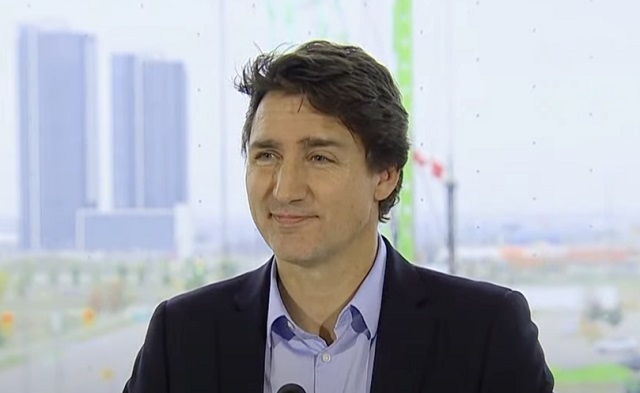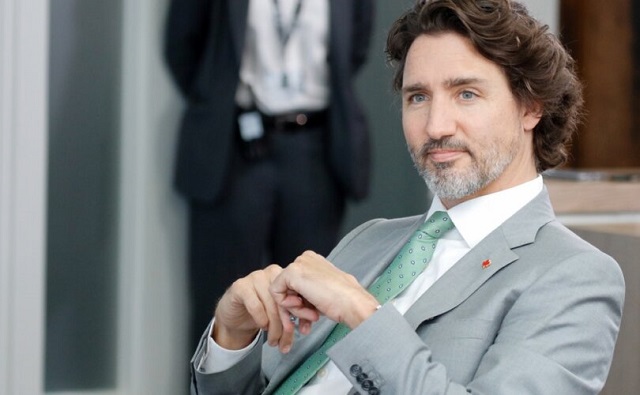Alberta
Saskatchewan Premier Scott Moe is leading the fight against our own federal government to save Canada
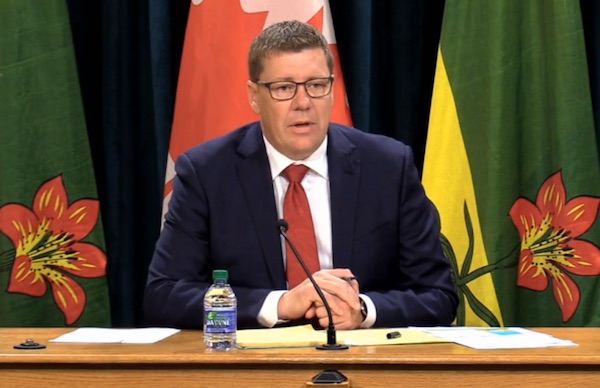
Article submitted by Josh Andrus of Project Confederation
A lot of media attention of late has been focused on the Emergencies Act testimonies in Ottawa and Danielle Smith’s rise to the Premier’s Office here in Alberta.
However, the biggest development in federal/provincial politics in the last week might actually have happened in Saskatchewan, where Premier Scott Moe has taken a firm stance against the federal government in a document entitled Drawing the Line: Defending Saskatchewan’s Economic Autonomy.
The paper clearly sets out a problem and then proposes specific solutions.
First, the problem…
The Saskatchewan government has identified nine different federal climate change policies that are estimated to cost the province a total of $111 billion between 2022 and 2035 – the approximate halfway point to the federal government’s 2050 net-zero targets.
The costs of each of the nine policies are:
- Federal Carbon Tax: $24.7 billion;
- Oil and Gas Methane Mandate: $6.3 billion;
- Oil and Gas Emissions Cap: $2.6 billion;
- Fertilizer Mandate: $19.3 billion;
- Clean Fuel Regulations: $34.9 billion;
- Zero Emission Vehicle Mandate: $10.3 billion;
- Federal Output Based Pricing System: $12.5 billion;
- Agriculture Methane Initiatives: $0.5 billion;
- Landfill Methane Mandate: $0.2 billion.
Don’t forget – these are just the direct costs.
We all know that the energy industry powers every other industry and, since energy is required to create almost every other product, as energy prices increase, costs for consumer goods will undoubtedly rise across the board as well.
Scott Moe and his team have a clear understanding of the problem and are deeply concerned about the impacts federal environmental policy can have on the economy.
For a province like Saskatchewan, where total provincial revenue for 2022 was just $17.2 billion, $111 billion is a gigantic cost.
And if that’s the cost to our neighbours, imagine what it will cost here in Alberta!
Remember too, this is just the first half of the federal government’s 2050 plan!
The economic costs of Net Zero 2050 are completely lost on the Trudeau government.
The 2021 Supreme Court of Canada ruling on the constitutionality of the Carbon Tax, as we noted at the time, creates a dangerous precedent where the federal government can essentially trample all over the constitutional jurisdiction of provinces using the Peace, Order, and Good Governance Clause embedded in the constitution.
This means that the Supreme Court has effectively ruled that the federal government can take control of practically any issue, simply by claiming that it is a matter of national concern – completely ignoring provincial jurisdiction.
Consider that the definition of Confederation, as espoused by the Oxford English Dictionary, is a union of sovereign groups or states united for purposes of common action.
Instead, what we now have is a federal government that has decided, upon the alter of climate change, to sacrifice our livelihoods and, with them, the very idea of Canada itself.
If we want to save this country, we need substantial reforms to the way this country is governed.
Thankfully, the Saskatchewan government’s paper also proposes some solutions that include:
- Provincial legislation to clarify and protect constitutional rights belonging to the province.
- Pursuing greater autonomy over immigration policy to ensure Saskatchewan has the people it needs.
- Better recognition of Saskatchewan industry’s contributions to sustainable growth – for example, developing a carbon credit market to support our natural resource industries.
- Preparing to take legal actions, legislative or otherwise, to maintain control of electricity, fertilizer emission/use targets and oil and gas emissions/production.
Here at Project Confederation, we’re very supportive of these ideas – in fact, many of them are ideas we’ve been promoting not just for Alberta, but for all of the west, since we launched as an organization.
So, props to Scott Moe and the Saskatchewan government for pushing us down the right path.
With your continued support, we can’t help but be excited about what we are capable of as we move forward.
Having seen significant success in Alberta already, we will be expanding our work all across Saskatchewan and the other western provinces in the coming months, as we take on Ottawa and prepare for the onslaught of a hostile federal government over the next few years.
If you’d like to get involved in our campaigns, you can sign up to volunteer with us here.
We also need financial support to continue with our work.
If you can afford to help fund our important work, please click here to make a contribution:
Thank you again to everyone for their help with this campaign and we look forward to working with you on many more issues in the future.
Regards,
Josh Andrus
Executive Director
Project Confederation
Alberta
Danielle Smith warns arsonists who start wildfires in Alberta that they will be held accountable

From LifeSiteNews
The Alberta government has created an ad campaign highlighting the fact that most fires are caused by humans and not ‘climate change,’ as many left-leaning politicians claim.
In preparation for the so-called wildfire “season,” Alberta Premier Danielle Smith sternly warned anyone caught starting blazes in her province, including arsonists, that they will face charges and be held fully “liable” for all costs associated with the fires.
“As we approach the wildfire season, it is important to understand that 67% of wildfires in Alberta are started by people,” Smith posted Monday on X.
“If you start a wildfire, you can be charged, fined, and held liable for all costs associated with fighting the wildfire.”
Smith made the comments after last year revealing that most of the wildfires in her province (500 of the 650) were caused by humans and not “climate change,” as has been pushed by the legacy media and opposition politicians.
“All I know is in my province we have 650 fires and 500 of them were human caused,” she said, “so we have to make sure that when people know that when it’s dry out there and we get into forest fire season that they’re being a lot more careful because anytime you end up with an ignition that happens it can have devastating consequences.”
To go along with Smith’s Monday message, the Alberta government has also created an ad campaign highlighting the fact that most fires are caused by humans and not “climate change,” as many left-leaning politicians claim.
As reported by LifeSiteNews last year, Smith ordered arson investigators to look into why some of the wildfires that raged across the vast expanse of the province had “no known cause” shortly after they spread.
During the campaign of Alberta’s 2023 election, Smith, whose United Conservative Party won a majority government, had to pause to deal with many wildfires that suddenly, out of nowhere, ravaged the province. The fires came on suddenly and uncharacteristically considering the heavy snowfall in the province in early March and rain in April.
LifeSiteNews reported that despite the arrest of multiple arsonists, Canada’s mainstream media and the federal government have been pushing a narrative attributing the recent wildfires to “climate change.”
Indeed, in January, LifeSiteNews reported that a man from Quebec admitted to starting 14 forest fires himself. This put a chill to the legacy media’s push that the fires in the province were caused by “climate change.”
However, statistics from Canada’s National Fire Database show that wildfires have gone down in recent years and peaked in 1989.
As for Canadian Prime Minister Justin Trudeau, he has repeatedly used “climate change” and forest fires as a catalyst for propping up his government’s much-maligned carbon tax, which Smith opposes. He has blamed the fires on “climate change.”
A June 2017 peer-reviewed study by two scientists and a veteran statistician confirmed that most of the recent global warming data have been “fabricated by climate scientists to make it look more frightening.”
Trudeau has been calling for increased bans on Canada’s natural resources, of which Alberta has in abundance.
Smith has vowed to fight Trudeau on his attacks against Alberta’s oil and gas industry.
The reduction and eventual elimination of so-called “fossil fuels” and a transition to unreliable “green” energy has also been pushed by the World Economic Forum (WEF), the globalist group behind the socialist “Great Reset” agenda in which Trudeau and some of his cabinet are involved.
Alberta
Free Alberta Strategy backing Smith’s Provincial Priorities Act
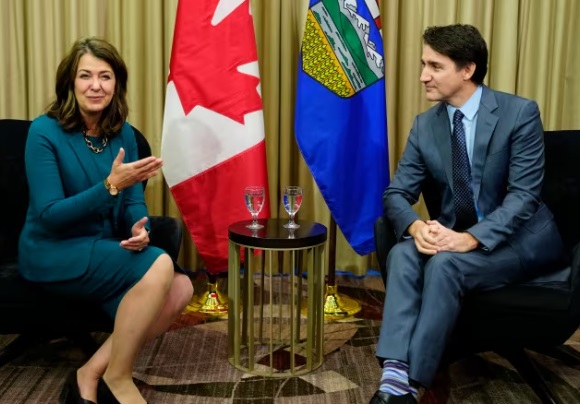
News release from Free Alberta Strategy
Premier Danielle Smith had a message for Ottawa last week.
Keep out.
On Wednesday, the Premier rolled out her latest weapon in the fight against federal intrusions into provincial jurisdiction.
If passed, Bill 18 – the Provincial Priorities Act – aims to align federal funding with provincial priorities, ensuring that said funding reflects Alberta’s interests.
The legislation stipulates that any agreements between the federal government and any provincial entities – including municipalities – must receive provincial approval to be considered valid.
Smith has already given it a nickname: “the stay-out-of-my-backyard bill.”
It’s an apt description of the legislation, especially considering that’s what the federal government has been doing for years – encroaching into Alberta’s jurisdiction.
The legislation shouldn’t come as a surprise to anyone.
We all know that most deals the Alberta government enters into with the federal government don’t work out for Albertans.
We end up paying more in federal taxes than gets spent in federal spending on the programs.
The programs come laden with restrictive conditions that undermine our autonomy, and are often detrimental to our ability to provide the services.
This is especially true with regard to the recent agreement between Ottawa and the provinces that allows the federal government to nationalize childcare.
The childcare agreement has come under heavy criticism due to funding shortfalls in the deal.
It also applies to housing, where despite Alberta accounting for 12% of the national population and experiencing the most rapid population growth, it received a mere 2.5% of the total $1.5 billion in federal housing funding last summer.
Jason Nixon, Minister of Seniors, Community and Social Services, is in charge of housing in Alberta – which is provincial jurisdiction.
On the latest rollout of conditional federal housing handouts, Nixon isn’t buying.
“We will not be bribed, with our own money, to increase the time it takes to get homes built with green energy that makes homes more expensive.”
The theory also applies to the federal government’s latest gambit – doing an end-around provincial negotiations and going directly to municipalities, who seem more interested in taking the money than the conditions attached.
Municipalities are provincial jurisdiction.
Bill 18 mandates that entities within Alberta’s jurisdiction, such as municipalities, universities, school boards, housing agencies, and health authorities, must seek the province’s approval before engaging in, modifying, extending, or renewing agreements with Ottawa.
Agreements between the federal government and provincial entities lacking Alberta’s endorsement will be deemed illegal under this legislation.
That’s Premier Smith’s message.
She’s had enough of it.
“It is not unreasonable for Alberta to demand fairness from Ottawa. They have shown time and again that they will put ideology before practicality, which hurts Alberta families and our economy. We are not going to apologize for continuing to stand up for Albertans so we get the best deal possible.
“Since Ottawa refuses to acknowledge the negative impacts of its overreach, even after losing battles at the Federal and Supreme Courts, we are putting in additional measures to protect our provincial jurisdiction to ensure our province receives our fair share of federal tax dollars and that those dollars are spent on the priorities of Albertans.”
Municipal Affairs Minister Ric McIver had additional thoughts:
“For years, the federal government has been imposing its agenda on Alberta taxpayers through direct funding agreements with cities and other provincial organizations. Not only does Alberta not receive its per capita share of federal taxpayer dollars, the money we do receive is often directed towards initiatives that don’t align with Albertan’s priorities.
“Albertans from all corners of the province expect our federal share of taxes for roads, infrastructure, housing and other priorities – not federal government political pet projects and programs in select communities.”
The Provincial Priorities Act is based on existing provincial legislation in Quebec – called “An Act Respecting the Ministère du Conseil executif” – which prohibits any municipal body from entering into or negotiating an agreement with the federal government or its agencies without express authorization from the Quebec government.
That’s right – the Quebec government has the same rule!
So, this boils down to the same argument we’ve been making for years – if Ottawa wants to step into our backyard, it must first seek Alberta’s approval.
Enough is enough – we won’t stand idly by as our interests are trampled upon.
It’s time for Ottawa to recognize Alberta’s autonomy and respect our right to determine our own future.
At the Free Alberta Strategy, we know that constant vigilance is necessary – for every fence we put up, the federal government tries to find a way around it.
We’ll continue to bring you information about what’s happening in Alberta’s backyard and fighting to keep Ottawa out.
The Free Alberta Strategy Team
-
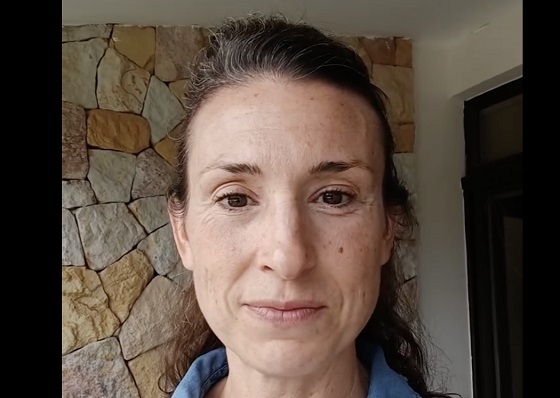
 COVID-192 days ago
COVID-192 days agoPro-freedom Canadian nurse gets two years probation for protesting COVID restrictions
-
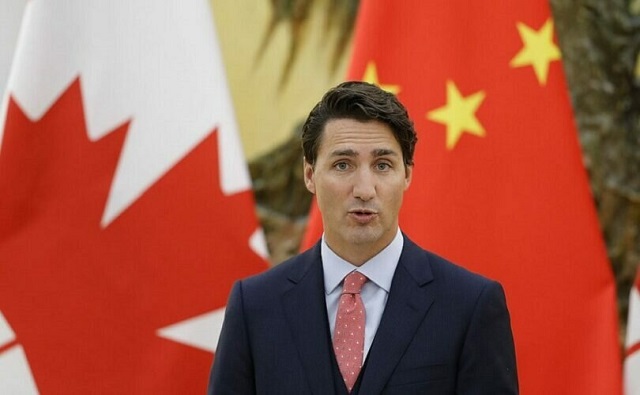
 espionage2 days ago
espionage2 days agoTrudeau’s office was warned that Chinese agents posed ‘existential threat’ to Canada: secret memo
-
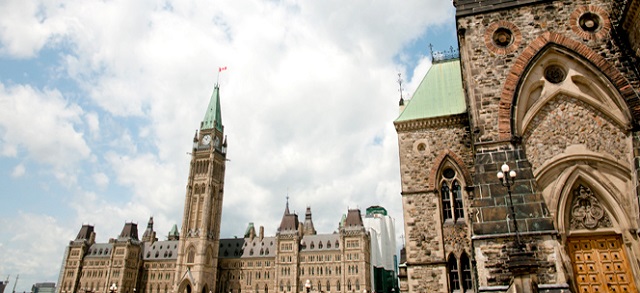
 Economy2 days ago
Economy2 days agoMassive deficits send debt interest charges soaring
-

 Business2 days ago
Business2 days agoBusiness investment key to addressing Canada’s productivity crisis
-

 Jordan Peterson1 day ago
Jordan Peterson1 day agoJordan Peterson slams CBC for only interviewing pro-LGBT doctors about UK report on child ‘sex changes’
-

 International2 days ago
International2 days agoBrussels NatCon conference will continue freely after court overturns police barricade
-
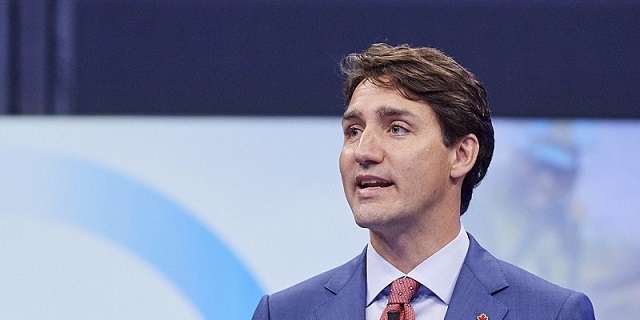
 Business2 days ago
Business2 days agoFederal budget fails to ‘break the glass’ on Canada’s economic growth crisis
-
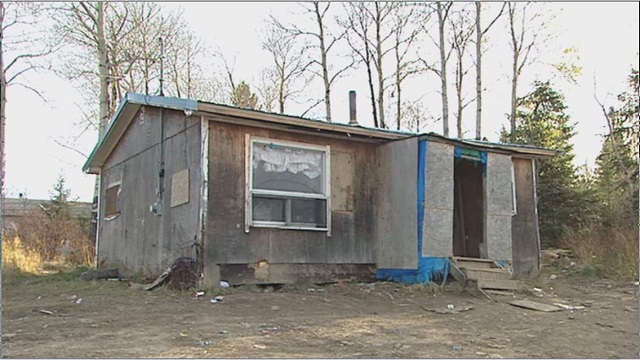
 Frontier Centre for Public Policy1 day ago
Frontier Centre for Public Policy1 day agoThe Smallwood solution



